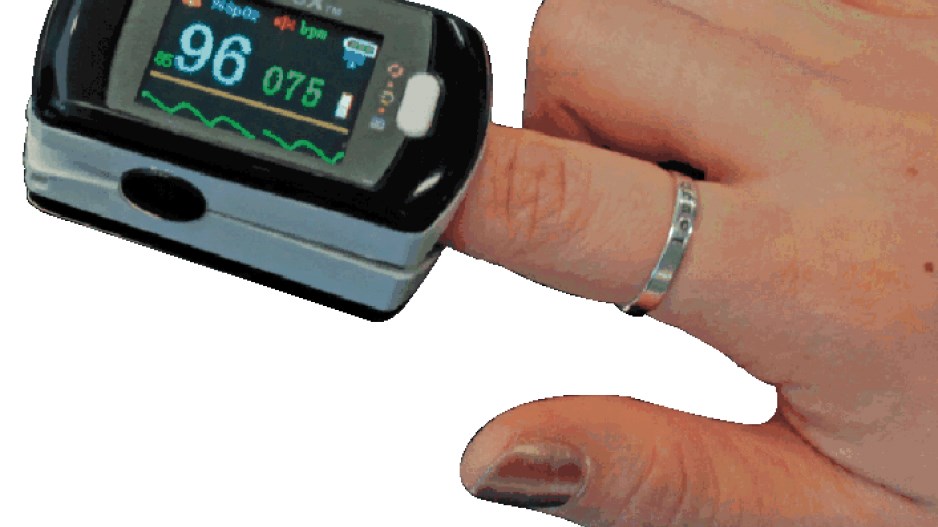New medical technologies are syncing with mobile apps to revolutionize traditional health-care systems.
Reflex Wireless is among a growing number of companies contributing to that revolution. The Vancouver company has developed a number of small sensors that collect and transmit data to a user's smartphone via Bluetooth or a base station.
It has developed a finger sensor that takes a series of readings, including blood pressure and heart rate. Data can be viewed on a smartphone using an app or a computer using accompanying software. If a patient fails to take a reading, a health-care professional is notified.
One of the most popular sensors analyzes a person's gait to determine if independent living is a viable option.
"Most complications occur after somebody has a fall, so it's better to focus on prevention," said Reflex co-founder Andy Tsai.
Patients attach a small sensor to their waist and one foot.
"Based on a person's ability to produce a stable gait, we give them a walking ability index to make a prediction on the likelihood that they will fall," said Tsai. "We message the care professional so they can place the individual in an appropriate environment if they develop a high risk."
The company has also created a wireless kitchen scale that allows consumers to monitor their caloric intake. It weighs food and transmits information wirelessly to a smartphone. Apps provide consumers with extensive nutritional information, including micronutrients so they can track their diet.
"A lot of the time people take vitamin pills or supplements because they have no idea how many nutrients they're taking," said Tsai. "This will allow them to gauge whether they're meeting their goals on a daily or weekly basis."
Most sensors provide free data to customers, but there is a subscription service costing between $0.80 and $1.50 a day for information that needs to be analyzed. Data is transferred to a server where information is compiled and care professionals or health facilities can then access a patient's reports.
Sales and distribution are among Reflex's biggest challenges. With a large overseas customer base, the company has found shipping costs often surpass manufacturing costs.
"We've also learned that engineering only becomes valuable when the product actually gets sold," Tsai said. "The cost of acquiring new customers can be very high if you're knocking on the wrong door."
Reflex has recorded sales of more than $120,000 since it started selling products in July.
Tsai said the company has also sold several devices to key health ministry officials for testing.
Brendan Byrne, vice-president for Telus Physician Solutions, said the industry is seeing personal monitoring devices become more sophisticated as integrated health platforms are created.
"We see Reflex as a natural partner in our desire to connect patients with providers and to take information about their care and turn it into a positive outcome," he said. "We're really on the cusp of seeing a transformed health system."




